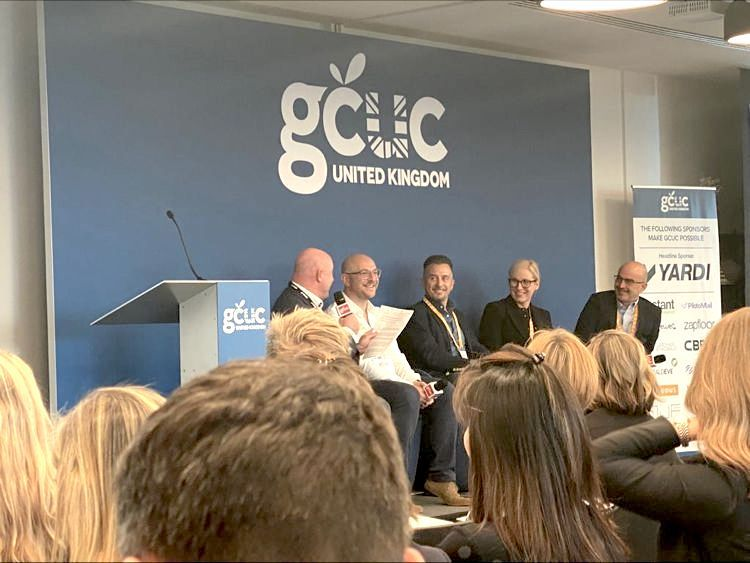Global Coworking Unconference Conference (GCUC) in London hosted many of the coworking industry's biggest players this week, including Orega CEO and co-founder, Zach Douglas, who offered insight into the future of coworking.
During the panel discussion titled "What do flexible workspace operators need to consider when expanding their footprint?", Douglas told the audience that there are five keys to success when expanding your flexible workspace footprint.
- Figure out the best operating model. Understand the difference between management agreements, leasing, and ownership.
- Decide where funding should come from. Should it be self-funded, retained shareholding, or third-party funding (which involves dilution)?
- Secure cash flow. Do your stress analysis exhaustively and make sure you have enough cash for what you wish to achieve.
- Product positioning. What customers are you seeking to appeal to? What product do you need to deliver to attract them, and what are the relevant merits and market niches available in your chosen space? A female-only coworking operator in the U.S. (The Wing) went bust recently — could it have been that they effectively restricted themselves to 50% of the marketplace?

"The demand side dynamics of the sector are proven: occupiers of all sizes place a premium on flexibility and this is translating into greater demand for flexible workspace," he noted.
Douglas says the supply-side dynamics are more nuanced, with both operators and landlords experimenting with new business models. He expects this evolution to continue and believes that this will bring massive value to the sector as a whole.
According to Douglas, it's key that operators conduct a stress analysis:
Cash is king in any business, and the flex sector is no different. There are two key factors to consider when stress testing your business model:
- Income
- Cost
Income: It's important to understand the impact that both competition and market dynamics have to play. How will your income projections impact business viability if, say, 20% discounting is required?
Cost: As always in business, there are many market forces that can impact your costs:
- Wages / staff costs
- Utilities (currently a big threat)
- Supply costs
- Rent reviews / business rates
Closely examine how sensitive your model is to fluctuations in those areas.
"Each operating model has its own benefits and risks," emphasized Douglas. "We pioneered the management agreement model in 2000 as we felt it was the best way to balance risks and rewards between operator and landlord. We also believe that management agreements deliver a better customer experience, as the landlord is commercially incentivized to improve and invest continuously in the flex space and other spaces in the building. In leases, there is a built-in incentive not to invest in the space towards the end of the term, resulting in an inferior customer experience and falling returns."
Learn more about Orega, our leadership team and our business model, or get in touch for more information.

